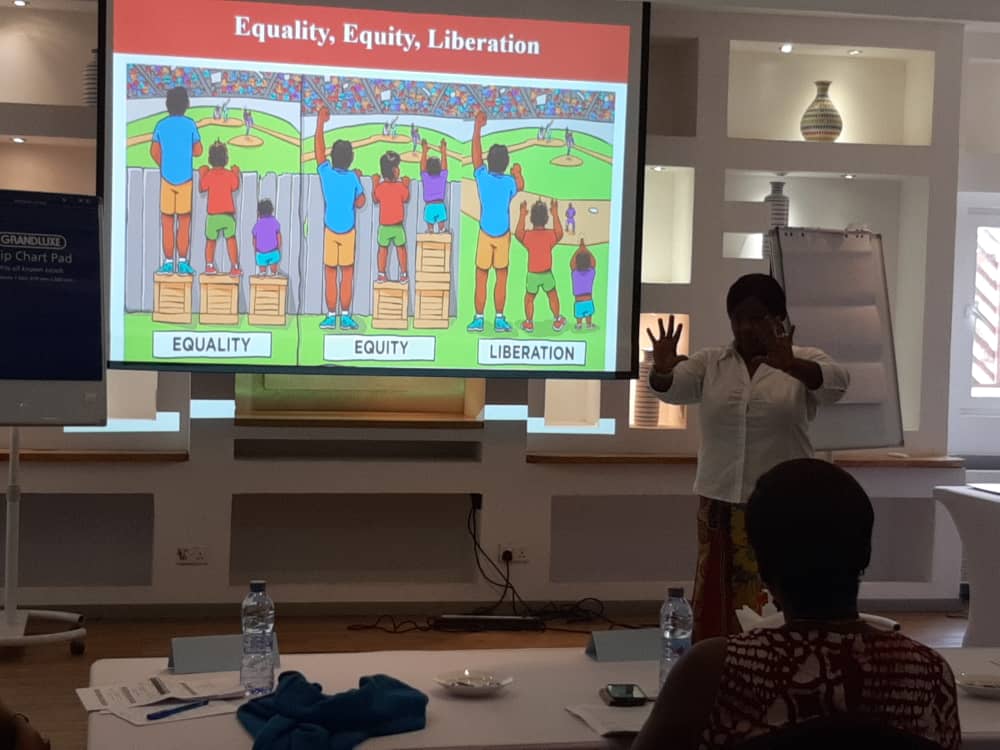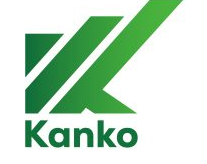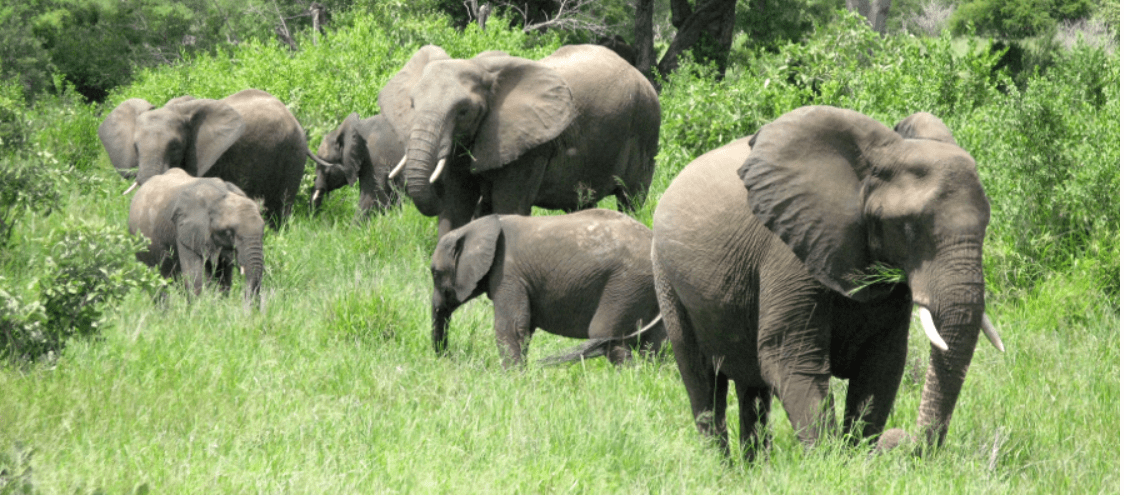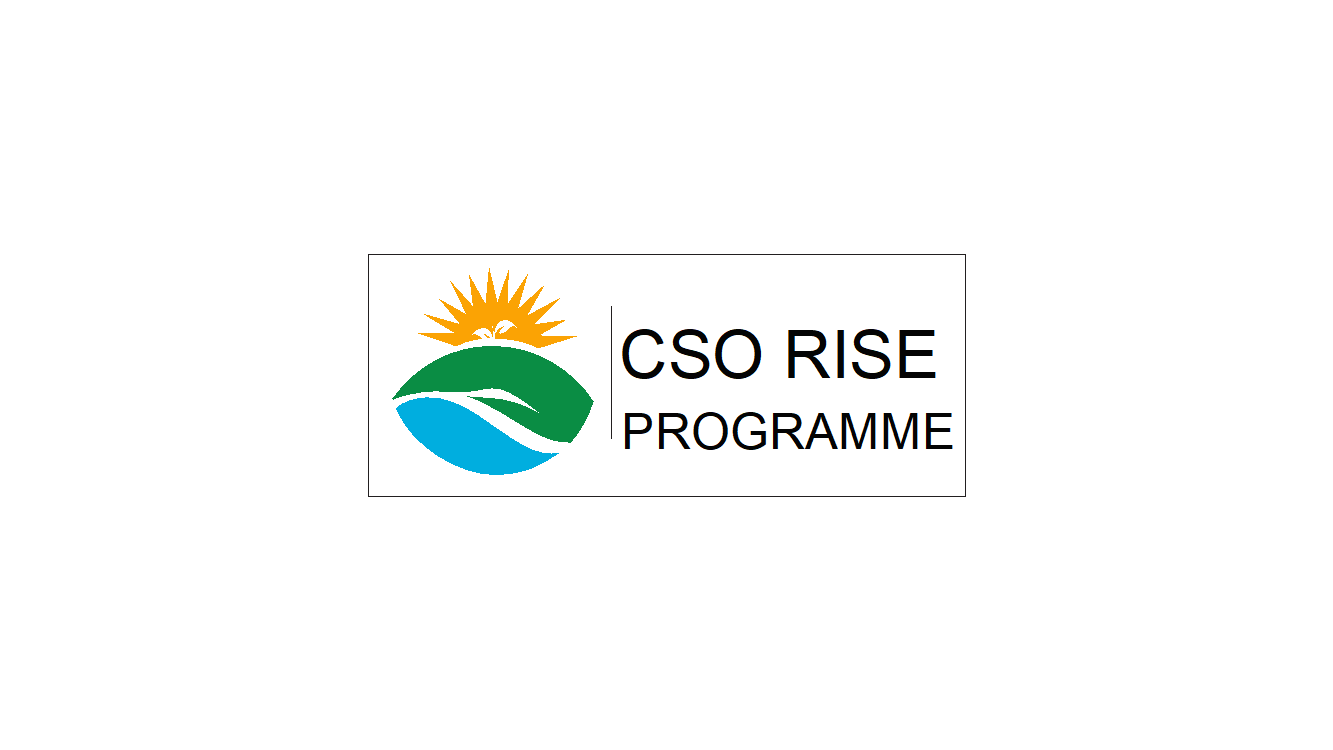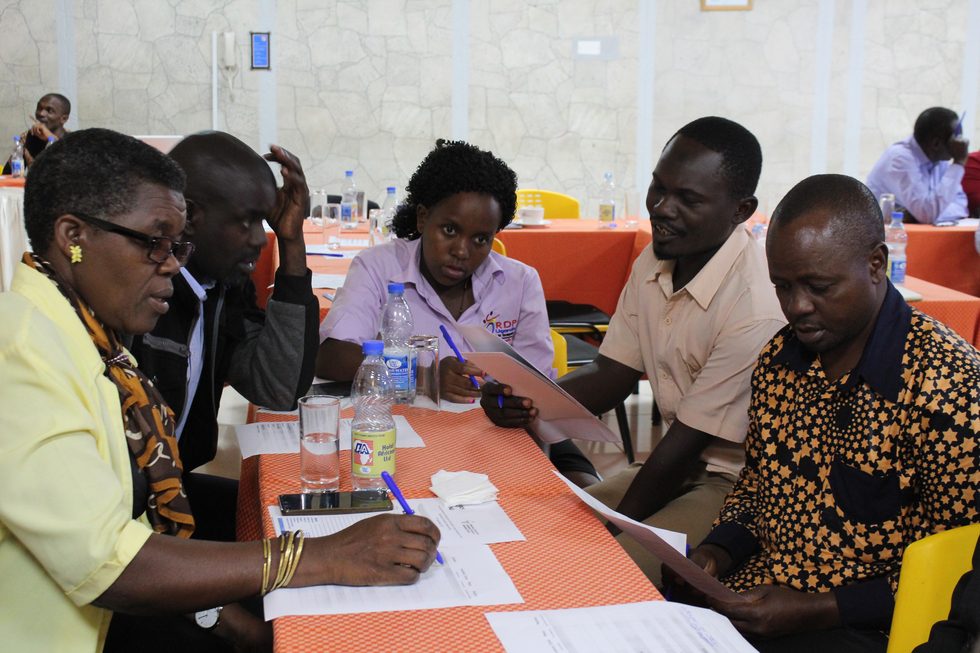By Chaz Kyser
As a company founded to create prosperity for African women, Ghana-based Global Mamas has striven to ensure that both the women it employs and those it partners with to make and sell its array of handcrafted products are treated equitably and positioned for success. However, there is always more to learn to effectively support and empower women. This was the key takeaway during a training June 24–25 in Accra on gender equality and social inclusion (GESI) sponsored by the West Africa Biodiversity and Climate Change (WA BiCC) program, which counts Global Mamas as one of its successful grantees.
The 2-day training was attended by 17 Global Mamas staff, including two men, and led by Mary Tobbin-Osei, WA BiCC’s GESI Specialist. Through in-depth discussions and break-out sessions tailor-made for the staff, Tobbin-Osei helped the participants understand the many barriers to GESI. She also provided guidance on how they can each play their part to break down these barriers and foster an environment in which all people are given the support needed to realize their potential, most notably women.
“You can still be a women’s organization but have human resources policies, organizational policies, working environments, and systems in place that exclude or hinder the advancement of women,” Tobbin-Osei explained.
Mallory Savisaar, a project manager for Global Mamas, agrees, and was excited about the prospect of staff being trained on GESI.
“Women’s economic empowerment is the reason that Global Mamas exists, and while we as individuals understand on a basic level why the work we do is important, we have room for improvement in understanding systemic inequalities and the way they play into our lives inside and outside of the workplace,” she said.
Topics covered during the training included understanding the basic concept of GESI, appreciating the relevance of gender analysis and mainstreaming in conservation work, and leveraging tools and approaches towards seeking women’s active and meaningful participation at all levels.
“Organizations that are involved in promoting biodiversity and rural development must understand that different groups of people use resources in different ways and different social groups have varied abilities to respond to empowerment programs and interventions,” Tobbin-Osei stressed. “Many rural women, for instance, will continue to be inactive when added to a decision-making body. This is simply because they see leadership as the role of men and not women. It is therefore important for organizations like Global Mamas to be equipped with tools and strategies to support such vulnerable persons in society.”
The challenge of women stepping back to let men speak for them is not new to Juliet Foriwaa, a bookkeeper for Global Mamas. However, she gained new strategies to work around this obstacle.
“Through this training, we have learned that if we are able to sometimes have separate meetings with the women alone, in the absence of the men, they will be willing to share their views and then we can incorporate their views into whatever we are doing,” she said.
Tobbin-Osei also focused on helping participants gain a deeper understanding of Global Mamas’ mission. She regarded this aspect of the training as particularly crucial.
“Most organizations begin with a group of people who have absolute clarity on its vision and mission. As the organization grows and some staff members move on and are replaced, the team dynamics change and organizational memories are taken away by those who exit” Tobbin-Osei explained. “Taking a women’s empowerment organization like Global Mamas through a GESI training re-energizes them to go back and do what they do with a deeper understanding and stronger passion, leading to much more lasting results.”
At the end of the workshop, participants left more capable of championing the tenets of GESI professionally and personally.
“I was hoping that everyone would gain a deeper understanding of gender inequality to help them build greater pride in the work that they dedicate their lives to. What I did not expect was to see so much interpersonal growth happen in such a short amount of time!” said Savisaar. “Everyone was relating the material to not only the lives of the women that they work with, but to their personal lives as well. It was really beautiful to be a part of that process.”
While only a small portion of those employed by Global Mamas’ were able to learn about GESI, Savisaar said the company plans to compartmentalize the training into smaller sections that can be presented to all of the 350 women that make up the Global Mamas team.
“We also want to include their husbands in these trainings, because we understand that everyone’s participation is necessary to achieve change,” she noted.
The GESI training for Global Mamas is one of many that Tobbin-Osei has led for WA BiCC’s grantees and partners, including for staff of the Economic Community of West African States, the Mano River Union, the Royal Society for the Protection of Birds, and the Wild Chimpanzee Foundation.
Speaking on the impact of the training, Tobbin-Osei said, “It is a great joy, hearing participants resolving to do things differently after the training, not just in their work, but also in their everyday lives.”
